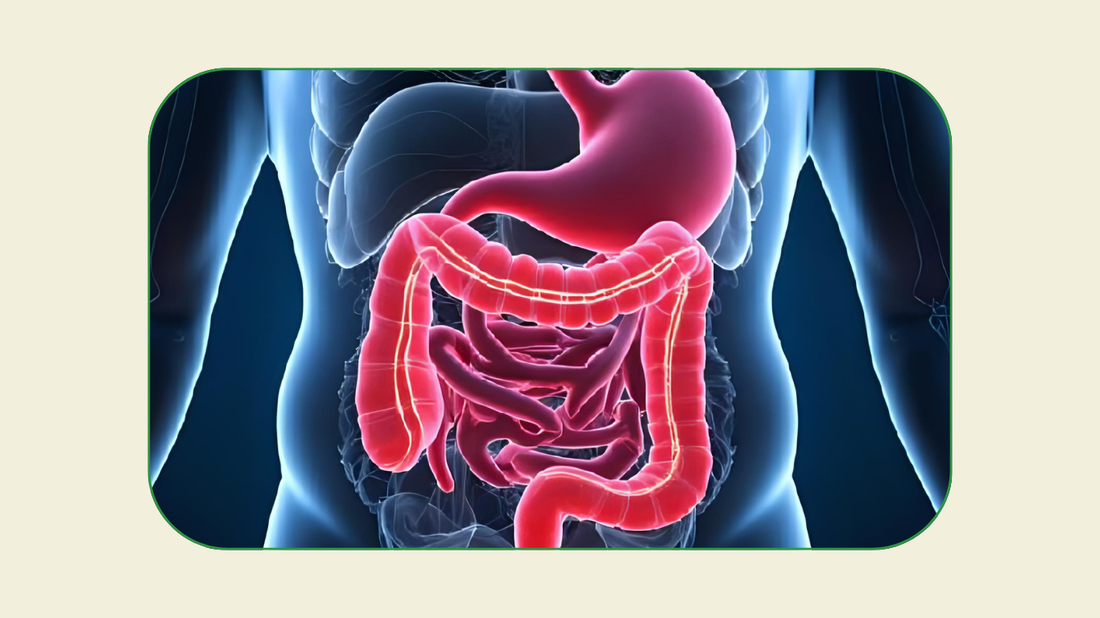
Leaky Gut Explained: Symptoms, Root Causes & Holistic Healing
jerome adamoShare
Understanding the Basics of Leaky Gut and How it Impacts Your Health
If you’ve been struggling with bloating, brain fog, food sensitivities, skin issues, or autoimmune symptoms, you may have come across the term leaky gut. But what exactly does that mean—and more importantly, how can you begin to heal it?
This article will walk you through what leaky gut is, what causes it, and how you can start restoring gut integrity with simple, natural practices rooted in both modern research and time-tested healing traditions.
This post is part of our Gut Healing Series — a 12-part journey into the hidden roots of digestive imbalance and the natural path back to balance. From microbiome repair to herbal remedies, mindful fasting, and daily rhythms that support your gut-brain connection, each article offers practical steps rooted in science and tradition.
What Is Leaky Gut?
Your gut lining is designed to act like a selectively permeable barrier—absorbing nutrients while keeping toxins, pathogens, and undigested food particles out of your bloodstream.
When the integrity of this barrier is compromised, it’s called intestinal permeability, more commonly known as leaky gut. Tiny gaps open up between the cells lining your intestines, allowing unwanted substances to “leak” into your bloodstream. This can trigger chronic inflammation, immune dysregulation, and a cascade of downstream symptoms.
Common Symptoms of Leaky Gut
Leaky gut can look different for everyone, but common signs include:
- Gas, bloating, or irregular digestion
- Food sensitivities or intolerances
- Fatigue or brain fog
- Skin issues like eczema, acne, or rashes
- Autoimmune flare-ups
- Joint pain or body aches
- Mood swings or anxiety
Because leaky gut affects both the immune system and nervous system, symptoms often extend beyond digestion.
What Causes Leaky Gut?
A variety of lifestyle, environmental, and dietary factors can weaken the gut lining. The most common culprits include:
Chronic stress
Stress reduces blood flow to the gut and suppresses digestive function. It also disrupts your gut microbiome, which plays a key role in maintaining barrier integrity.
-
Inflammatory foods
Gluten, refined sugar, processed foods, alcohol, and seed oils can damage the mucosal lining and promote inflammation. -
Medications
NSAIDs (like ibuprofen), antibiotics, and acid blockers are all known to disrupt gut lining and microbiome balance. -
Dysbiosis
An imbalance in your gut bacteria can weaken immune function and contribute to inflammation. -
Environmental toxins
Pesticides, mold, and heavy metals can also harm the gut lining.
How to Start Healing Leaky Gut Naturally
The good news: the gut is incredibly resilient, and you can begin restoring its function with daily practices that nourish, calm, and repair.
1. Support Digestion With Gentle, Whole Foods
Focus on anti-inflammatory meals that are easy to digest. Think warm broths, cooked vegetables, steamed greens, and gut-friendly fats like ghee, olive oil and avocado. Avoid raw salads and harsh fiber while healing.
2. Remove Irritants
Eliminate or severely reduce processed food, added sugars, gluten, alcohol, and seed oils for at least 30 days. This gives your gut lining a break so it can begin to repair.
3. Manage Stress With Intention
The gut won’t heal in a stressed-out body. Practices like daily meditation, deep breathing, or even a short walk after meals can reduce cortisol and support gut repair. Remember: the parasympathetic “rest and digest” state is where true healing begins.
4. Rebuild With Herbs and Nutrients
Certain herbs are deeply supportive of gut repair:
- Slippery elm & marshmallow root – soothe and coat the gut lining
- Licorice root (DGL) – reduces inflammation and helps seal the barrier
- Chamomile & peppermint – calm both the gut and nervous system
- L-glutamine – an amino acid that fuels intestinal cell repair
You can incorporate these through teas, tinctures, or gut-healing formulas (check labels and avoid unnecessary fillers).
5. Cultivate Healthy Gut Bacteria
Fermented foods like sauerkraut, coconut yogurt, or kimchi (in small amounts) help reseed your microbiome. Just go slowly—if you’re reacting, your gut may need more soothing first.
Be Patient With the Process
Healing leaky gut isn’t about perfection—it’s about consistency. Small daily actions create momentum, and over time, your body begins to respond. Inflammation fades. Your digestion improves. Energy returns.
And most importantly: you feel more like yourself again.
Final Thoughts
Leaky gut may be a modern epidemic, but its roots—and solutions—are timeless. From food and herbs to stress reduction and intentional living, you have powerful tools at your fingertips.
Start where you are. Pick one or two changes to implement this week. And remember: healing isn’t a straight line. It’s a return to balance, and your gut knows the way.
You might also like this gut related article:
The Stress-Gut Connection: How Chronic Stress Triggers IBS, Colitis & Digestive Flares
For more articles on Gut Health visit our Healing Protocols Blog page. Herbs for your gut see Herbal Remedies for Gut Health.
Our Laguna Gut Protocol is a structured step by step program combining food, lifestyle modifications and herb-based reset that helps you repair and rebalance your gut, reduce cravings, and reclaim your energy—without extremes or overwhelm. Perfect for IBD,IBS, Leaky Gut Colitis and Inflammation.
With care,
Cole
LagunaBeachApothecary.com
